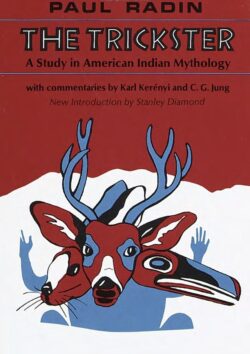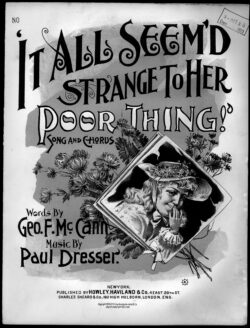Oh You Poor Things!
Oh You Poor Things!
Haven’t seen the movie “Poor Things?”
Want its surprises?
Then GO SEE IT before you read this…
and in the meantime, click the image below
v
v
v
A LITTLE PLUG FOR YOU BOOK CLUBBERS
[CLICK!]
In their 2018 period comedy The Favourite, Arizonan Emma Stone and Athenian Yorgos Lanthimos gave us clues of mischief to come: most notably, the gorgeously silly dances that poke fun at the formality of 18th century European aristocratic dancing…mocking its proposed dignity and delicacy. Definitely rewind and watch that scene at least twice for good to great laughs. But also catch the touch of slapstick as Abigail Hill (Stone) is pushed into cow patty mud at least twice. The distracted wedding night sex is worthy and funny, but the biggest hint of what Lanthimos the director may next have in store is the humorous and poignant mood of Olivia Colman as Queen Anne. How miserable she is, between her gout and her resentment of the tasks of governing. Power sucks! And her portrayal garnered her an Oscar.
Speaking of which, this year’s Oscar Mayer
Weiner Winner for Best Picture goes to Lanthimos’
Poor Things. This award ceremony exists in my head, and I’d wager you have your version as well. The Golden Hot Dog (it comes with a Weenie Whistle) was initiated at last year’s event, where
Everything Everywhere All at Once accepted the award with their trademark hot dog fingers. Beyond appropriate. And I don’t know about you, but
I’d love to be an Oscar Mayer Weiner.

Oscar Mayer Weinermobile
Public Domain
I digress…
My whole schtick has been that the grownup who retains the ability to be playful as they were when a very young child will, consciously or unconsciously, encounter and engage with the Trickster archetype. In Poor Things, through the magic of moviemaking, Lanthimos states this premise through his mad scientist riff on Dr. Frankenstein, Godwin Baxter (Willem Dafoe). Godwin puts the brain of an unborn child into the corpse of her mother and then reanimates the combo, an acting challenge if there ever was one, taken on with great artistry and irrepressible playfulness by Emma Stone as Bella Baxter. His efforts to raise the child, at least until the brain catches up with the body, falter, and Bella leaves home to encounter, explore, and master the world on her own terms. We’re thus given, within the world of the film and this imaginative plot device, an arguably objective fable of how a consciousness unfettered by culture or moral doctrine—aka The Trickster—can manifest, of how this pre-human form can leapfrog over the strictures of civilization to a vantage point and perspective of society that transcends the neuroses and mistaken moves that have historically bound us. A review of the major attributes of the Trickster archetype puts Poor Things to the test.
We know Trickster as demigod, fictional character, archetype, and lowercase trickster as a human with whom the Trickster Force is strong. Bella as a Frankenstein so-called monster, neither human nor divine, tricks us right out of the gate, thus meeting the criterion by confounding it.
Tricksters are boundary-crossers, and Bella refuses to be controlled and lets her impulses override any instruction on what is civilized—with her uninhibited exploration of sex; her iconoclastic means of walking, of talking, of eating; and her constant making and breaking of promises—all declare this attribute without a second thought. Boundaries? What boundaries?
Emma Stone
Published prior to July 2017 under the Creative Commons CC0 1.0 Universal Public Domain Dedication license
Tricksters are loners. Bella’s creator, Godwin, nicknamed God, realizes this when he releases her into the world. He cannot hold her back. That even though she puts her current fiancé on hold while taking off with her new lover (Mark Ruffalo as Duncan Wedderburn), he understands the necessary lonerism many adolescents adopt in their striving for individuation. She is capable of both the attachments of platonic love, love with sex, and the detached love of the prostitute. Her lonerism doesn’t prevent connection, but empowers her to set her own conditions upon it.
Tricksters have almost insatiable hungers for food and sex. Bella’s enthusiasm for sex with and without emotional attachment attests to this. And her search for a custard pastry at all costs, her willingness to taste all foods and unceremoniously spit out the morsels that don’t appeal, speak to both this hunger and her scatologic nature. Tricksters fear no scatology, it’s an obvious sign of their lack of inhibition.
Tricksters are morally indeterminate. As Paul Radin states (defaulting to male pronouns) in his seminal work, The Trickster (1956), “He possesses no values, moral or social, is at the mercy of his passions and appetites, yet through his actions all values come into being.”[1]

Bella Baxter’s tale in Poor Things takes us through the earliest stages of moral development. The most notable, and the nod to socialism or at least a more utopian view, comes into play when she witnesses the poverty and suffering shown her in Alexandria and responds with an impulsive (and immediately betrayed) donation of lover Duncan Wedderburn’s assets. To Wedderburn, her broken-hearted exploiter-turned-failed-suitor, she shows the faint beginnings of empathy. But the point may be more the depiction of a hilarious downfall of male dominance, arrogance collapsing into pathetic misery. Ruffalo gives the performance of a lifetime, and kept me in stitches throughout the flick.
Like the Trickster, there is a pure heart and nary a mean bone in her body. But incidental meanness comes with her pursuit of fun—and finding the best life. As she begins to enjoy sex with more and more gusto, Bella wonders why people don’t simply do this all day, every day. While we witness this as early pondering of existential questions, it in fact underlies a critique of our own flawed morality and opens the door to new thinking. It refreshes our weary souls.
Time travel is a feature of trickster tales. In this case, there is the obvious displacement of the reanimated corpse, representing the past, and the brain of an unborn infant, a beacon of the future. But add to that the steampunk settings of the film, that scenes are given a place—Lisbon, Paris, Alexandria, a ship, London—but not a time. Allusions to the Victorian era’s uptight morals are put there as the most imposing and fun-to-topple foil, but the fairytale buildings, vehicles, odd animals and such create a world possible only with the mashups of various eras and realities.

A Steampunk Fantasy
Published prior to July 2017 under the Creative Commons CC0 1.0 Universal Public Domain Dedication license
Tricksters can be very powerful, but it is in their nature to mock power. They do not amass armies, they do not seek to control others, but in their self-assuredness, they maximize the power of the self-knowing individual. Bella Baxter exemplifies this attribute as she makes her self-directed wanderings more in the stumbling style of the Winnebago tribe’s Wakdjunkaga, humanity’s oldest known Trickster, than that of a wandering Warrior such as Ulysses.
More than innocence, Poor Things is about the perspective of an infant mind that’s unaffected by culture and its norms, yet grows. And in another way, the film is also an extension of the beautiful minds of those with developmental disabilities. Thus it sets the table for a fresh view of what to make of the world. Are we cruel? Or compassionate? What is learned through sex without shame? Can human nature change? From what must we be freed in order to think of how the world could be? What does a fresh perspective look, taste and feel like? We are bluntly challenged to open our minds to the possibilities of a different world. In the case of the surgeon Godwin Baxter, this is the most literal of metaphors.
The way it is is not the way it has to be. By placing the film in the context of fantastical steampunk, the settings act like little firecrackers in our brains—to provoke us, to inspire our own imaginations. In other words, this alternate universe becomes less a fantasy and more a suggested future.
The Goth, the horror, the steampunk, the portrayal of developmental disabilities: in other films, all these tropes succumb to cultural stereotypes and tell the same old stories. Poor Things liberates us to think differently, regardless of the goat-boy punchline, the only thing in the film that was not surprising. Oh, the poor things! Who are the poor things? We are.
[1] Radin, Paul, The Trickster: A Study in American Indian Mythology (New York: Schocken, 1956), pp. xxiii-xxiv).
They Live!!
Let’s meet up and see what the hubbub is all about. I’ll be doing a few live presentations around Washington, and offer more details below. In the meantime, does the name SULTAN [Library] mean anything to you? May 18 at Noon, a beautiful Saturday to come spend 87 crack-your-brain minutes with The Trickster. They Live!!
 Public Domain
Public Domain
ONE MORE THING BEFORE I GO:
When trying to discern whether a being is or ain’t a trickster, we distinguish between the fictional or divine capital T Trickster and the human lowercase trickster, saying that the Trickster Force is strong with them.
In general, we are unaccustomed to the Trickster, as society’s infatuation with the Warrior and the Parent tend to blot out or sideline any Trickster ubiquity . And when Trickster does manage to grab our attention—Bugs Bunny, Loki, Raven—the presentation leans male despite Trickster’s all-gender no-gender essence. Yet through Bella we gain a deeper understanding of this archetype, still battling the patriarchy, but with humor and fresh perspectives beyond what Scheherazade, Mae West, Yayoi Kusama, Bea Lillie, Yoko Ono and other trickster women have already given us.
Is Bella a trickster? Because if the concept of the trickster has been limited by the patriarchal frame, when we are presented with what might appear to be a trickster in the form of a woman, we must relax previous “rules” and be open to revisions. We are more accustomed to male presentations of the trickster personality, yet Bella begs the question of divinity and The Force is very strong with her. She knocks on the door of demi-godliness.
Tricksters play tricks, and frequently their tricks backfire, and tricks are also played upon them. Wedderburn tricks. The fiancé [Ramy Youssef as Max McCandless] tricks. Dr. Baxter tricks. But all THEIR tricks backfire. The demands of the Bella character, that she be unabashedly and pitilessly honest, limits her ability to perform trickery. Thus the more clouded Trickster attribute in Bella: Tricksters are liars and saviors. These questions will have to be answered in the sequel. But Bella Baxter just may be the true demigoddess Trickster of our age.
Thanks for reading!
Click the Coyote for details.
The Trickster in Politics and Culture
319 Main St Suite 100
Sultan, WA 98294-0580
Saturday, May 18
Noon
It’s gonna be a lot of fun:
Around the town of Washington State
Tricking Power into Performing Acts of Love
August 20, Wine & Wisdom at Basalt Cellars, Clarkston [Tentative]
September 19, Olympia World Affairs Council

 Back to Blog
Back to Blog




 Public Domain
Public Domain
